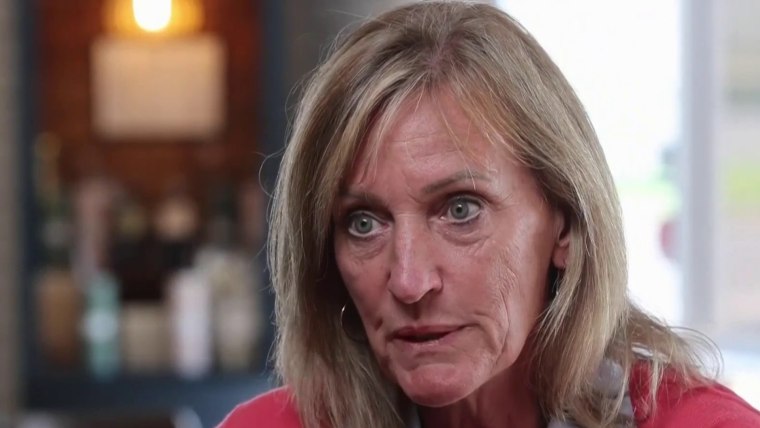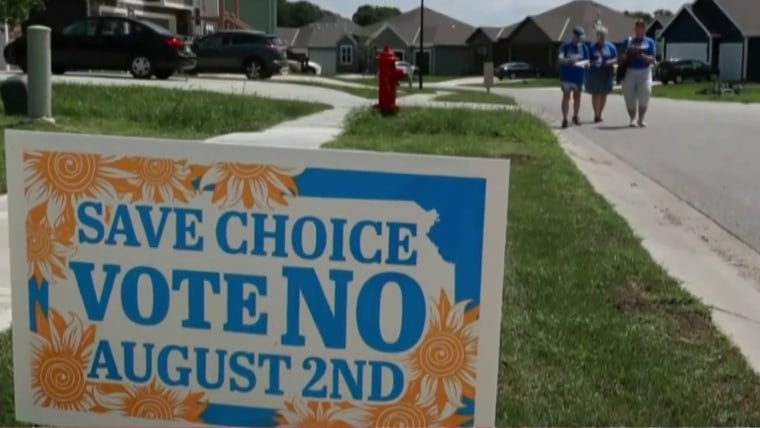Kansans went to the ballot box on Tuesday with an especially weighty task before them: whether to amend the state’s constitution to explicitly allow for a ban on abortion. Proponents and opponents of the amendment had spent the last few weeks in a pitched battle to either upend or maintain the status quo in one of the few states in the region where abortion remains legal.
We’ve spent considerable time over the last few years discussing the threat to democracy that minority rule creates. We’ve seen it in gerrymanders that create one-party state legislatures, the Senate’s filibuster rule and in a small band of conspirators trying to keep a losing candidate in the White House. All represent hostility to the majority.
It was from the start a campaign to strip rights from others, an example of democracy at its worst.
The push to end abortion in Kansas, though, is the flip side of that coin, in that Tuesday’s referendum sought to use majority rule to create an oppressive law. It was from the start a campaign to strip rights from others, an example of democracy at its worst. And on Tuesday, that campaign failed. Others like it will follow, but for now at least one state has opted to use the power of the majority to look out for everyone's rights.
The first section of the Kansas Bill of Rights, included in its state constitution from 1859, was cribbed almost verbatim from the Declaration of Independence. It holds that “all men are possessed of equal and inalienable natural rights, among which are life, liberty, and the pursuit of happiness.” In 2019, the state Supreme Court cited those words in finding that the state constitution “affords protection of the right of personal autonomy, which includes the ability to control one's own body, to assert bodily integrity, and to exercise self-determination. This right allows a woman to make her own decisions regarding her body, health, family formation, and family life—decisions that can include whether to continue a pregnancy.”
It's that ruling that the amendment put before Kansas voters sought to overturn. The so-called “Value Them Both” amendment sought to add a new section 22 to the state bill of rights, declaring that as “Kansans value both women and children, the constitution of the state of Kansas does not require government funding of abortion and does not create or secure a right to abortion.” It also grants “the people, through their elected state representatives and state senators” the power to “pass laws regarding abortion.”

The wording of the rest of the amendment reveals how deceptive its supporters were throughout this process. Specifically, it empowers state abortion laws “including, but not limited to, laws that account for circumstances of pregnancy resulting from rape or incest, or circumstances of necessity to save the life of the mother.” Note that those examples are all things that most Americans see as the bare minimum to keep anti-abortion laws from crossing the line into outright barbarism. That’s a bit of misdirection though — it’s the “including, but not limited to” line that should be the focus. That phrasing opens the doors to all manner of restrictions without guaranteeing that those exceptions listed be included in any law that passes.
How to balance the power of the majority with the rights of the minority is one of democracy’s biggest challenges.
As if that trickery weren’t enough, Vice News reported on Tuesday that just hours before polls opened, a wave of misleading text messages hit voters’ phones: “Women in KS are losing their choice on reproductive rights. Voting YES on the Amendment will give women a choice. Vote YES to protect women’s health.” But the wording of the ballot proposal makes clear that those wanting to pass abortion restrictions were to vote YES and those wanting to keep things as they are now were to vote NO. The Washington Post later reported that the texts could be traced to a Republican-aligned firm in Nevada.
How to balance the power of the majority with the rights of the minority is one of democracy’s biggest challenges. Wide majorities once supported unjust laws upholding segregation and sexism and homophobia. The enhanced freedom that comes with enfranchising Americans sometimes comes with the tyranny that their bigotries inspire. It is with that in mind that the goal should always be to uplift and protect those whose rights may be trampled.
At its founding, Kansas was the site of a bloody struggle over whether everybody within its boundaries was to be considered free or whether to legalize slavery. The voices of freedom won out in that struggle, voting to inoculate its citizens from the evils that would just a year later tip the country into civil war. Democracy was a tool to safeguard freedom then. On Tuesday, Kansans were offered the chance to use the shield that democracy offers as a bludgeon. Instead, they chose to have their state remain as a haven for those wishing to be free.

